The New York Times: US missiles strike targets in Yemen linked to the Houthi militia
The American-led strikes came in response to more than two dozen Houthi drone and missile attacks against commercial shipping in the Red Sea since the Israel-Hamas war began.
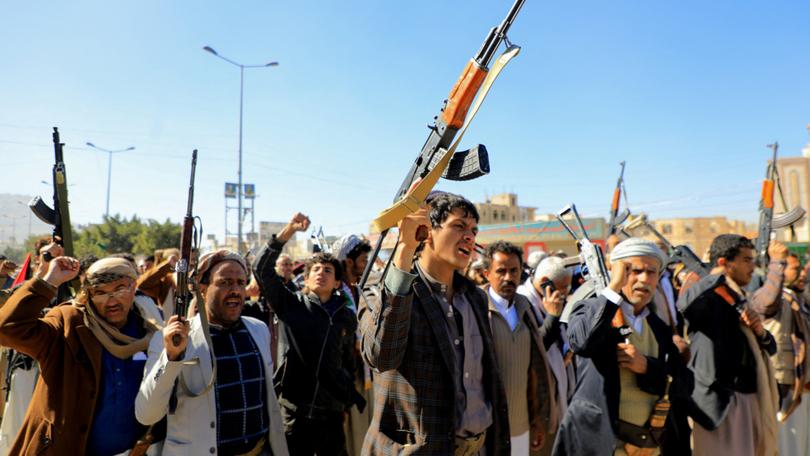
The United States and five of its allies on Thursday carried out military strikes against more than a dozen targets in Yemen controlled by the Iranian-backed Houthi militia, in an expansion of the war in the Middle East that the Biden administration had sought to avoid for the past three months.
The US-led air and naval strikes came in response to more than two dozen Houthi drone and missile attacks against commercial shipping in the Red Sea since November, and after warnings to the Houthis in the past week from the Biden administration and several international allies of serious consequences if the salvos did not stop.
On Thursday night, President Joe Biden called the strikes a “clear message that the United States and our partners will not tolerate attacks on our personnel or allow hostile actors to imperil freedom of navigation in one of the world’s most critical commercial routes.”
Sign up to The Nightly's newsletters.
Get the first look at the digital newspaper, curated daily stories and breaking headlines delivered to your inbox.
By continuing you agree to our Terms and Privacy Policy.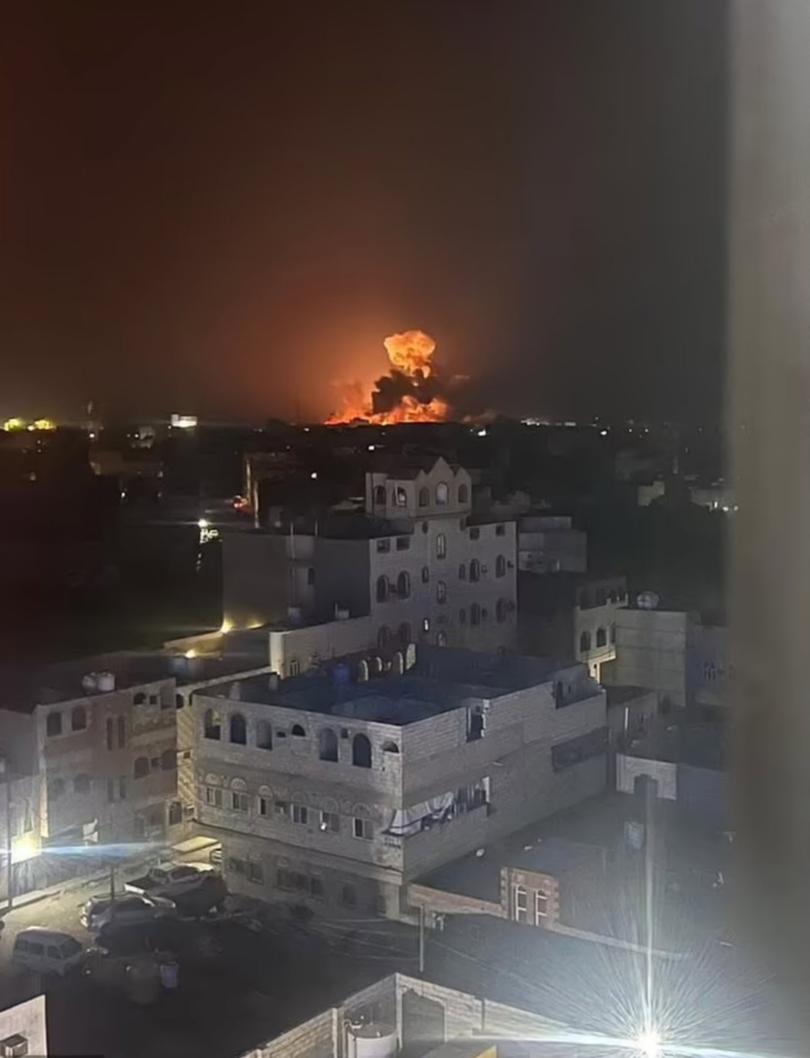
In a statement, he warned: “I will not hesitate to direct further measures to protect our people and the free flow of international commerce as necessary.”
But the Houthis have defied earlier U.S. ultimatums, vowing to continue their attacks in what they say is a protest against Israel’s military campaign in the Gaza Strip.
More than 2,000 ships have been forced to divert thousands of miles to avoid the Red Sea, causing weeks of delays, Biden said. On Tuesday, US and British warships intercepted one of the largest barrages of Houthi drone and missile strikes yet, an assault that US and other Western military officials said was the last straw.
Biden officials said they had telegraphed what was coming for weeks. But the strikes, they said, were meant more to damage Houthi capability and to hinder the group’s ability to strike Red Sea targets, rather than to kill leaders and Iranian trainers, which could be viewed as more escalatory.
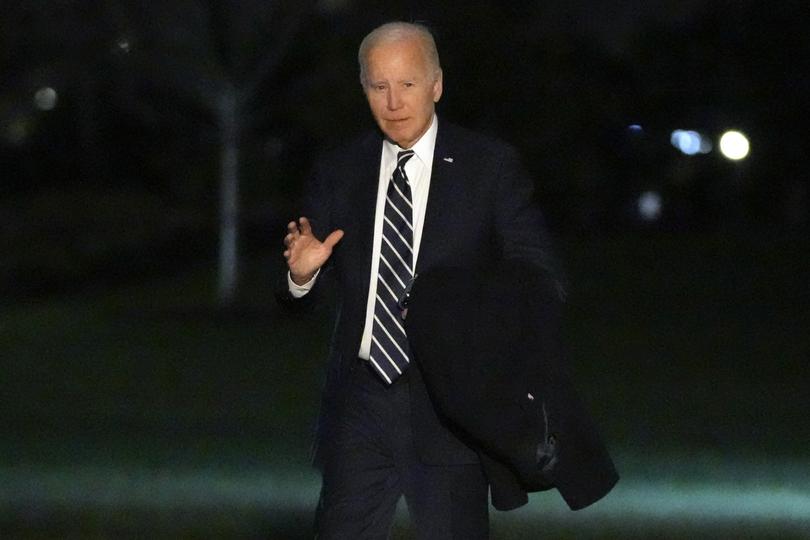
The strikes hit radars, missile and drone launch sites, and weapons storage areas, Defense Secretary Lloyd Austin said in a statement. Pentagon officials said late Thursday they were still assessing whether the strikes were successful, and emphasized that they had sought to avoid any civilian casualties.
Thursday’s attack drew the United States more deeply into a conflict that ignited after Hamas attacked Israel on Oct. 7 and killed 1,200 people, according to Israeli officials. The Israeli response has so far killed more than 23,000 people in Gaza, according to health authorities there.
Some U.S. allies in the Middle East, including the Gulf nations of Qatar and Oman, had raised concerns that strikes against the Houthis could spiral out of control and drag the region into a wider war with other Iranian proxies, such as Hezbollah in Lebanon and Iran-backed militias in Syria and Iraq.
But Thursday, the United States decided to act. Britain joined the United States in the attack against the Houthi targets as fighter jets from bases in the region and off the aircraft carrier USS Dwight D. Eisenhower struck targets with precision-guided bombs.
“The United Kingdom will always stand up for freedom of navigation and the free flow of trade,” British Prime Minister Rishi Sunak said in a statement.
The Netherlands, Australia, Canada and Bahrain also participated, providing logistics, intelligence and other support, according to US officials. At least one Navy submarine fired Tomahawk cruise missiles, the officials said.
Biden called the response from the international community “united and resolute.” Bahrain was the only Arab nation to take part, and there were questions as late as Thursday afternoon whether the small kingdom would be willing to publicly acknowledge its role. In the end, it did.
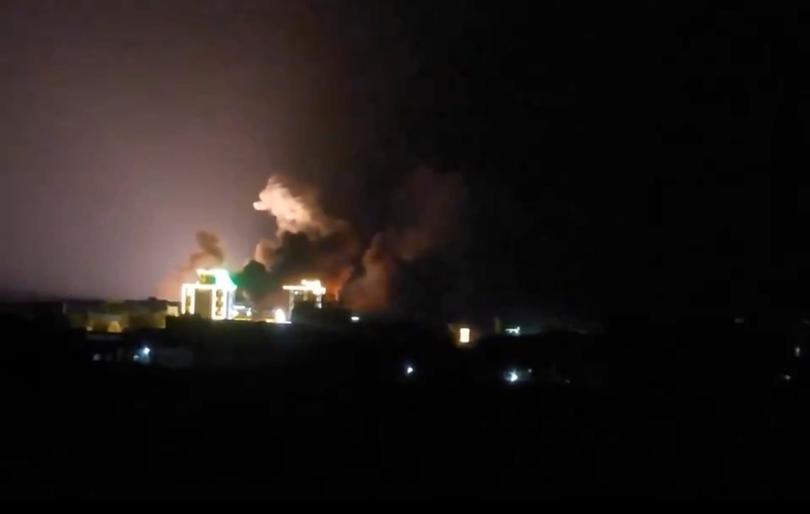
The Houthi foreign ministry responded to the attacks with a statement that “the U.S. and U.K. must be prepared to pay a heavy price and face the serious consequences of their aggression.”
It was unclear whether the allied strikes would deter the Houthis from continuing their attacks, which have forced some of the world’s largest shipping companies to reroute vessels away from the Red Sea, creating delays and extra costs felt around the world through higher prices for oil and other imported goods.
The Houthis, whose military capabilities were honed by more than eight years of fighting against a Saudi-led coalition, have greeted the prospect of war with the United States with open delight. On Wednesday, before the strike, Abdul Malik al-Houthi, the militia’s leader, threatened to meet a US attack with a fierce response.
“We, the Yemeni people, are not among those who are afraid of America,” he said in a televised speech. “We are comfortable with a direct confrontation with the Americans.”
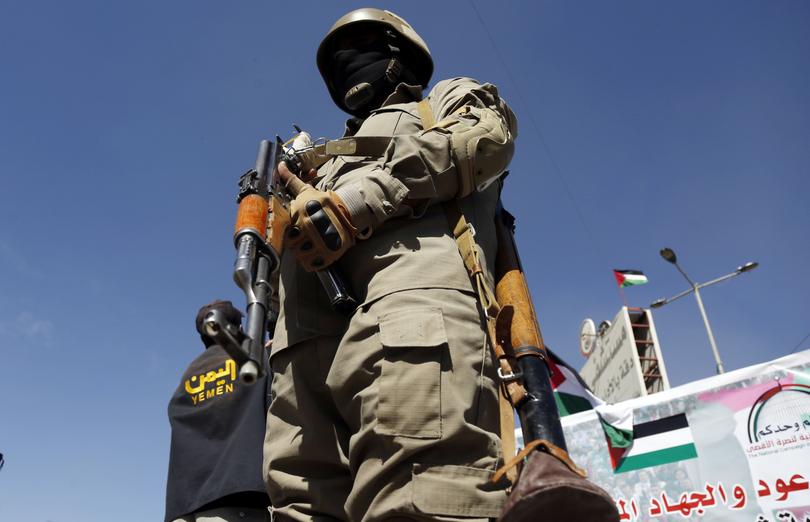
Administration officials have sought to separate the Houthi attacks from the conflict in Gaza, and to cast as illegitimate Houthi claims that they are acting to support the Palestinians. The officials are emphasizing that difference so that they can try to contain a wider war even as they ramp up their targeted response to the Houthi attacks.
Houthi officials say the sole goal of their attacks is to force Israel to halt its military campaign and to allow the free flow of aid into Gaza.
For the Biden administration, the decision to finally strike back at the Houthis was three months in coming. Despite the barrage of attacks from the Houthis, the administration had hesitated to respond militarily for a number of reasons.
There was a fear that strikes on Yemen could escalate into a tit-for-tat between U.S. naval vessels and the Houthis and even draw Iran further into the conflict, officials said. On Thursday, Iran’s navy seized a vessel loaded with crude oil off the coast of Oman.
Top Biden aides also had been reluctant to feed the narrative that the Yemeni militia group had become so important as to warrant U.S. military retaliation. Several administration officials said the United States was also wary of disrupting the tenuous truce in Yemen.
The Houthis, a tribal group, have taken over much of northern Yemen since they stormed the nation’s capital, Sanaa, in 2014, effectively winning a war against the Saudi-led coalition that spent years trying to rout them. They have built their ideology around opposition to Israel and the United States, and often draw parallels between the American-made bombs that were used to pummel Yemen and those sent to Israel and used in Gaza.
“They offer bombs to kill the Palestinian people,” al-Houthi said in his speech. “Does that not provoke us? Does that not increase our determination in our legitimate stance?”
Hundreds of thousands of people have died in airstrikes and fighting in Yemen, as well as from disease and hunger, since the conflict there began. A truce negotiated in 2022 has largely held even without a formal agreement.
U.S. and other Western officials said the continuing attacks by the Houthis left them little choice but to respond, and they will hold the Houthis responsible for the attacks.
“We’re going to do everything we have to do to protect shipping in the Red Sea,” the US national security spokesperson, John Kirby, said at a news conference Wednesday.
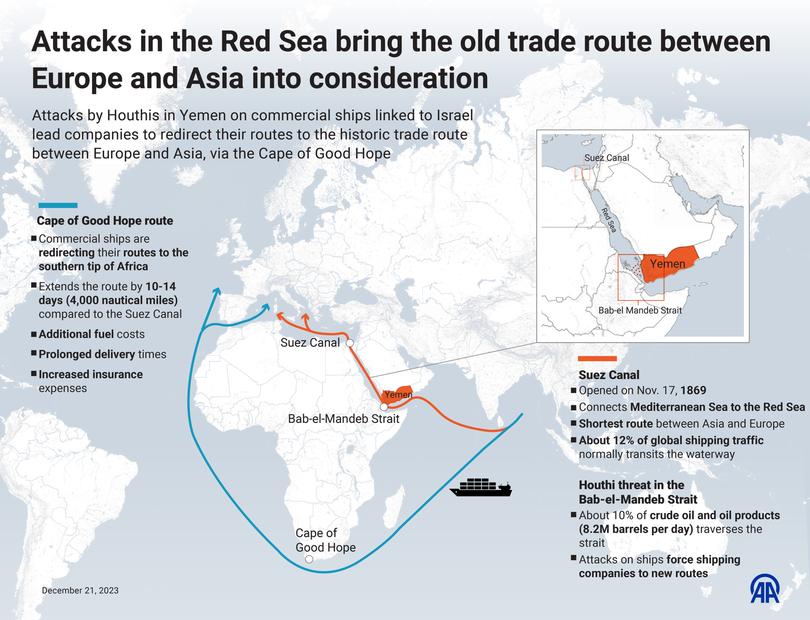
Biden authorized the strikes earlier in the week, and Austin gave the final go-ahead Thursday from Walter Reed National Military Medical Center in Bethesda, Maryland, where he is being treated for complications from prostate cancer surgery.
The administration briefed senior Democrats and Republicans on Capitol Hill earlier Thursday that they planned to carry out strikes, a decision that generated bipartisan support.
The strikes came after weeks of consulting with allies. On Wednesday, Gen. CQ Brown Jr., chair of the Joint Chiefs of Staff, was on the phone with his British counterpart, Adm. Sir Tony Radakin, to discuss the strikes, defense officials said.
Thursday night’s strikes were the biggest U.S. attack against the Houthis in nearly a decade. In 2016, the United States struck three Houthi missile sites with Tomahawk cruise missiles after the Houthis fired on Navy and commercial vessels. The Houthis’ attacks stopped afterward.
This article originally appeared in The New York Times.
Originally published on The New York Times
